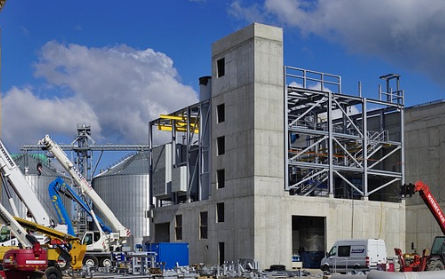It’s Important to Know the Project Type: whether a Project is Private, Public, or Federal
Construction projects generally fall into one of three categories: private, public, or federal. These categories identify the project type and help determine whether you would secure mechanic’s lien or bond claim rights. Project type is dictated by property ownership.
First There’s Private or Public Projects
A private project is a private improvement contracted by a private entity, a public project is an improvement of public works or building under formal contract made by any government authority (the state, county, city, or political subdivision), and a federal project is a contract for the construction, alteration or repair of any public building or public work of the United States.
Private projects may include office buildings, restaurants, stores/retail, or churches, whereas public projects could include public schools, city hall, or the Department of Transportation. Be careful not to confuse public projects with establishments that are open to the public. For example, just because a church is open to the public does not mean the property is publicly owned; similarly, restaurants are open to the public, but the entities that own the property are private entities.
Then There’s Federal Projects
Typically, federal projects may include construction at a United States Post Office, an improvement to a United States Airforce base, or repairs to a Federal Reserve building. However, there may be situations where a federal project is actually a private project or leasehold situation. Frequently, the government will lease building space from another entity, which could change the project type.
In fact, I mentioned the Federal Reserve as being a federal project, but the Federal Reserve Bank is a quasi-public (government entity with private components) banking system. Because of the “quasi” nature, it’s important to carefully review the contract and obtain a copy of any payment bond that may have been issued for the project. While you review the project documentation, I recommend you also review the statutory guidelines for both public and federal projects. If it’s a state where the public bond claim deadline is sooner than a federal bond claim deadline, you may want to track the project as though it is public, this way you are less likely to miss any deadlines.
Quasi Could Also Apply to Private and Public Projects
This notion of quasi projects isn’t limited to federal projects. Another common example is professional sports facilities. Typically, professional sports facilities are quasi-public-private projects, with a public entity owning the property and the sports team leasing the property.
Of Course, Remember Lien on Leasehold
When property is leased, whether it’s publicly or privately owned, you may encounter a lien on leasehold interest. A lien on leasehold interest is real property held by a lessee under lease. When liening a tenant improvement, the statutes vary by state as to whether a mechanic’s lien would be available against the property, the leasehold interest of the tenant, or both.
Projects on Sovereign Territory
If a project is owned by a tribal authority and/or on an Indian Reservation, the mechanic’s lien and bond claim statutes would not apply, as the land would be considered sovereign territory. In some instances, the tribal authority may require a payment bond. Always attempt to confirm whether a payment bond was required and obtain a copy.
Can I Lien a Riverboat?
This question is more common than you may think. Your rights to a mechanic’s lien may be questionable when furnishing materials or services to a riverboat casino. If the materials or services are provided to a “floating” riverboat, Maritime law may apply. If the materials or services are provided to the land at which site the riverboat is docked, mechanic’s lien rights may be available. Like riverboats, construction on oil rigs may fall under Admiralty and Maritime Law.
I Have No Idea the Project Type
Determining whether a project is private, public, or federal can sometimes be difficult. If you are unable to confirm property ownership and the project doesn’t seem to fit nicely in a designated category, you may want to consider additional investigation and review of information. If you need help, we are here for you!
